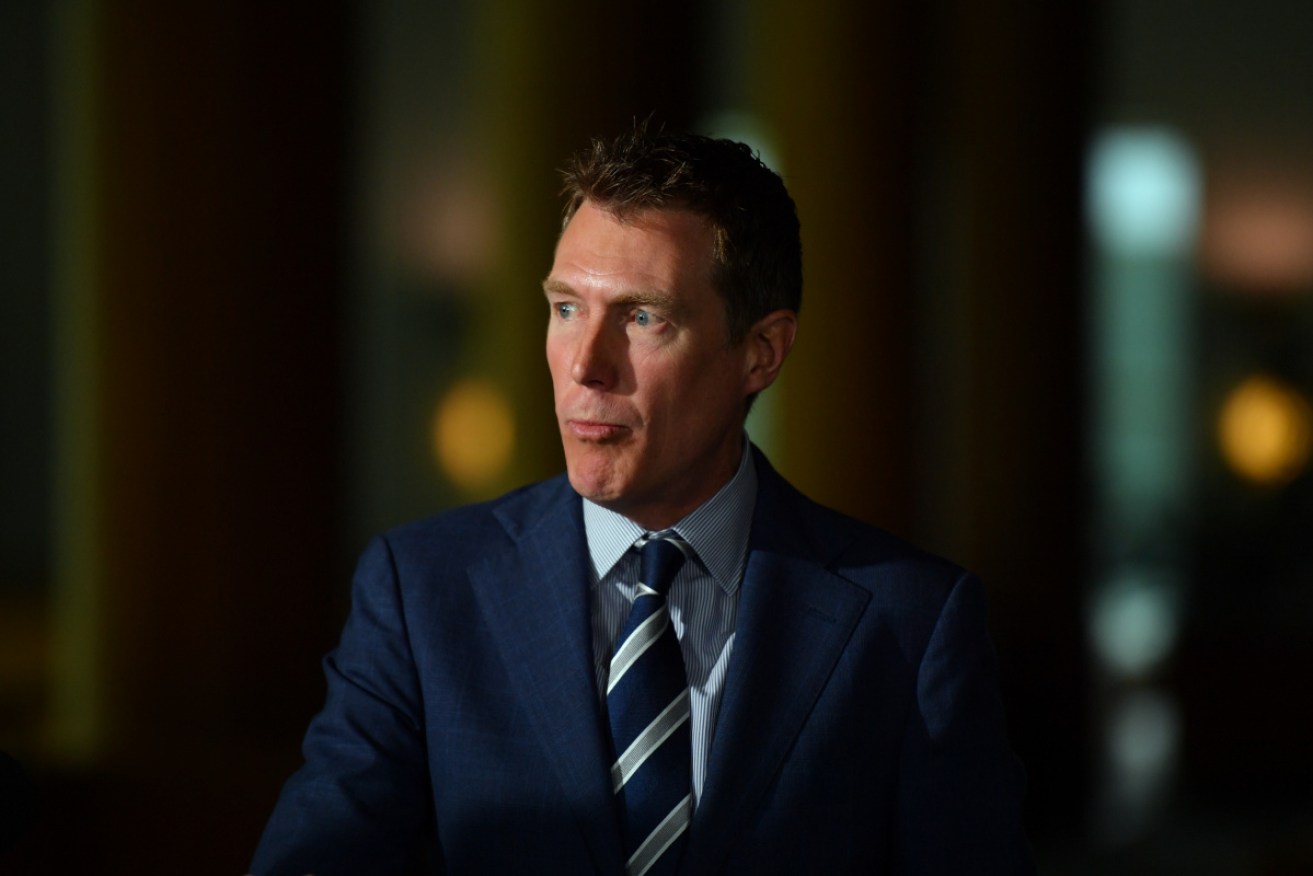Dodgy wage theft bosses face $5.5 million fines, jail under government crackdown


Christian Porter detailed part of the laws on Monday. Photo: AAP
Employers who intentionally underpay their workers could face millions in fines and years in jail under strict new federal laws to punish wage theft.
But industrial relations experts say the crackdown could be useless without extra resources for workplace watchdogs, saying effective enforcement was more crucial than higher penalties in stamping out wage theft.
The federal government will introduce the penalties as part of its omnibus bill on industrial relations this week, promising action on dodgy bosses.
“Whilst most employers do the right thing and ensure their staff receive their full entitlements, it is also clear that tougher penalties are needed – including a new criminal offence – to protect workers and honest businesses from the small minority of unscrupulous operators who deliberately exploit their staff,” Industrial Relations Minister Christian Porter said on Monday.
“Wednesday’s IR reform bill will include tougher penalties for wage underpayment and, for the first time, a criminal penalty regime for wage theft.”
Under the beefed-up laws, maximum penalties for “the most egregious examples of genuine wage theft” would run to $5.55 million for corporations, while individual bosses would face up to $1.11 million or five years in jail.
“The offence would apply in circumstances where a national system employer dishonestly engages in a deliberate and systematic pattern of underpaying one or more of their employees,” Mr Porter said.
However, he added the offence would not apply to “one-off underpayments, inadvertent mistakes or miscalculations” – drawing a line between accounting errors and deliberate, systematic underpayment.

Christian Porter said employers face millions in fines. Photo: AAP
Under proposed changes to civil law, which would require a lower burden of proof for intent, companies could face fines of up to “three times the benefit obtained” – that is, being penalised triple the amount they withheld from workers.
Labor industrial relations spokesman Tony Burke said the Opposition was broadly supportive of a crackdown on wage theft, but repeated earlier criticisms that the government had not released the full legislation yet for review or debate.
“I’ll wait till I see the detail in terms of the legislation itself before I commit any further to that,” Mr Burke said.
He added the proposed laws had come after “a long period of horrific examples of wage theft”.
“The fact that they’re now talking many months later about legislating is something that as a principle, we welcome,” Mr Burke said.
Huge penalties might not help
Despite the millions in fines and years in jail under the proposal, one expert says the changes might not do the job in stamping out wage theft.
Dr Stephen Clibborn is co-director of the Employment Relations Research Group at the University of Sydney Business School. He said overseas evidence had found that simply boosting penalties for wage theft didn’t always work to alleviate the issue.
Instead, he said, stronger investigation and enforcement actions were needed to actually police the laws.
“While it makes intuitive sense to treat a wage-stealing employer the same as a till-stealing employee, the key question is, ‘Will it increase employer compliance with minimum wage laws?’ Unfortunately, the likely answer is ‘no’,” Dr Clibborn said.

Tony Burke said Labor was supportive of a wage theft crackdown. Photo: AAP
He said it was a “discredited assumption” that there was a direct link between higher penalties and lower incidences of wage theft.
Instead, he suggested extra resources to bolster the capacity of the Fair Work Ombudsman and other workplace investigation bodies to probe wrongdoing.
“What contemporary international and Australian research shows us is that increasing employer compliance is about creating an expectation in the mind of the employer that they will be caught if they do the wrong thing,” Dr Clibborn said.
“Unless there’s additional reforms related to enforcement [in the full reform package], just increasing fines or criminalising the worst cases of wage theft, is unlikely to do much.”
Australian Council of Trade Unions secretary Sally McManus said she welcomed the wage theft action, but said unions had a problem with the enforcement side.
“We welcome any laws that will address wage theft, increasing penalties and cracking down on those who underpay workers is an important start,” she said.
“We do not support the high bar set for criminal offences, it is unlikely any employer will ever be caught and it will wipe out stronger and better laws in Queensland, Victoria and the ACT.”
Dr Clibborn also voiced concern about how the laws would be enforced, and particularly which specific person could be charged in the case of wage theft at a large business.
“If you need to prove intent [to underpay], then whose intent? The CEO? The payroll officer? The HR manager? A line manager? With those layers and organisations, we’re less likely to see that,” Dr Clibborn said.
“It’s more likely to be a small business where the employer is a single person … it’s unlikely to be a big business.”
The legislation is due to be introduced into Parliament on Wednesday.








